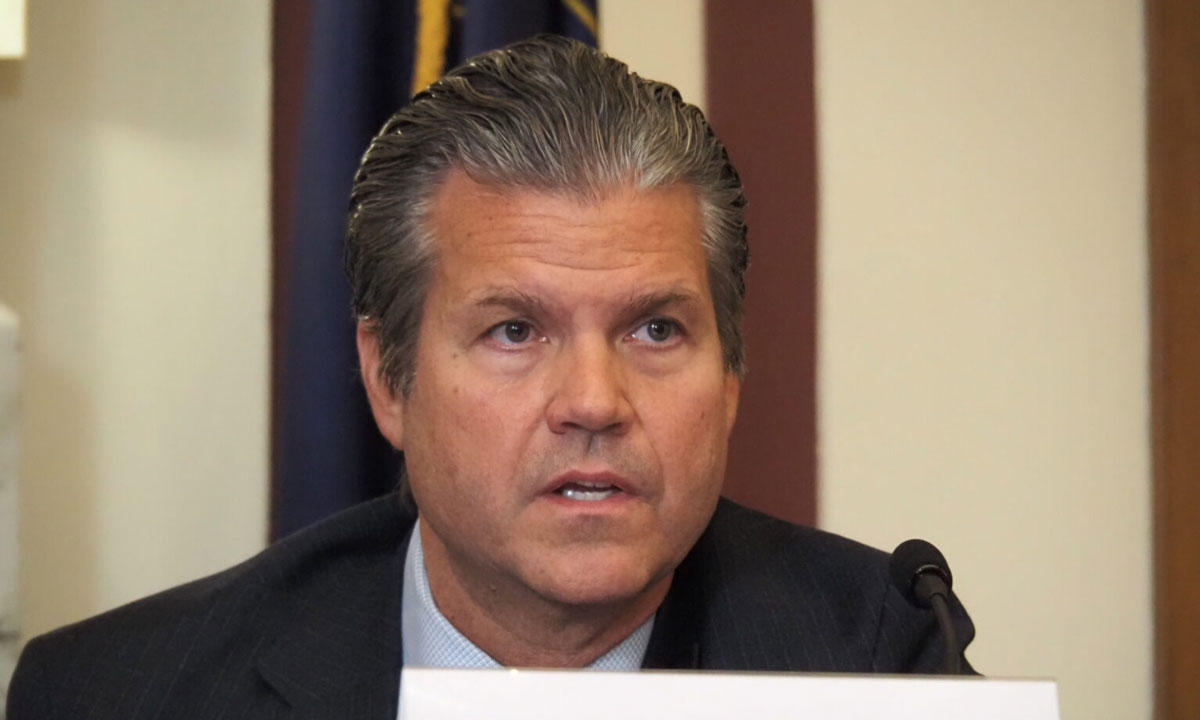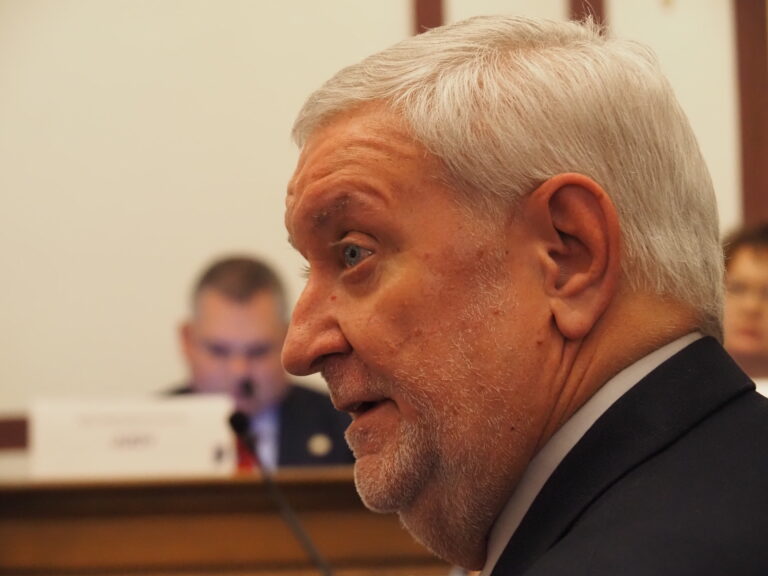Indiana Senator Eyes 2025 for “School Choice” Overhaul
A bill filed this session won’t move, but GOP Sen. Ryan Mishler wants to bring it back during next year’s budget seesion.

Get stories like this delivered straight to your inbox. Sign up for The 74 Newsletter
A top GOP state senator wants to completely overhaul Indiana’s private school vouchers with a grant program that would allow all Hoosier families — regardless of income — to choose where their students get educated.
The proposal will not advance in the current legislative session, but discussion at the Statehouse on Thursday previewed likely legislative momentum in 2025.
Senate Bill 255, authored by Sen. Ryan Mishler, R-Mishawaka, would bring an end to Choice Scholarships, which allows most Hoosier families to receive vouchers to attend private schools.
The special education-only Education Scholarship Accounts (ESAs), as well as the newly-established Career Scholarship Account (CSA) Program, would also come to an end.
Instead, Mishler is seeking to merge those programs into a new “Indiana Funding Students First Grant Program” for students ages five to 21.
The bill removes all income caps on current “school choice” grants and allows any Hoosier parent to apply for an annual grant that can be used for “qualified” education expenses. That includes tuition and fees, exam fees, services for students with a disability, transportation, payments for tutoring, and costs associated with extracurricular activities, apprenticeships or other programs.
Students already participating in the state’s choice programs would be unaffected and continue to receive funding to attend their desired schools.
“It’s a work in progress. We’re going to start the discussion on the issues within the bill … we have a year to try to decide what we want to do,” said Mishler, who chairs the Senate Appropriations Committee.
Mishler said the legislation “mixes” various school choice concepts. The intent of hearing the bill now, he added, “is to gather information.” Even so, testimony on the bill lasted less than an hour on Thursday due to scheduling restraints.
“The goal here was to give parents more flexibility,” said Mishler, who noted that many Hoosier students continue to struggle with foundational curricula in schools, even though the state “keeps putting more money into K-12 education.”
“When we drafted the bill, we felt like every type of student would benefit in some way,” he continued. “But we’ll be working on this over the summer to try to perfect things, so we have plenty of time for discussion.”
A universal ‘school choice’ landscape
As currently drafted, the bill sets up a two-year pilot program. Mishler said that won’t be the case when it’s refiled next year, though.
Rather, Indiana’s treasurer would be tasked with running the Funding Students First program.
“This bill is an option that lets parents control education dollars. This bill is a tool that gives parents more than two choices. This bill is an opportunity to allow parents the freedom to customize their child’s education,” Elliott continued. “We have found that when parents control the flow of dollars to their children’s education, they’re more engaged, more focused on their child’s needs, and in the best position to make sound educational choices.”
In 2022, state lawmakers expanded the Choice Scholarship program to be nearly universal and open to almost all Hoosier families. Private school voucher program grew by 30% in the current school year — the largest increase in the number of students in 10 years.
Under the new proposal, participating families with students attending private school would get 90% of the amount of money per child that their neighborhood public school gets from the state, identical to the existing Choice Scholarships available now.
Families would get 50% of the state’s base funding for students who are enrolled in a public school. In those instances, grants could be used for services outside of the public school’s jurisdiction, such as tutors, disability service providers and occupational therapists, among other education-related costs.
Rolling out Mishler’s new plan is expected to increase state spending by upwards of $46.5 million, according to a legislative fiscal analysis. But that estimate is based only on a pilot program.
Exact projections are dependent on changes to the state tuition support funding formula in the next biennium and changes to the number of students who participate in the school choice programs.
Given the significant financial impacts — and the Republican majority’s refusal to open the budget during the 2024 short session — Mishler’s proposal will remain on hold. In 2025, the measure must get approval from both the Senate education and appropriations committees before it can be passed to the House for additional consideration.
It’s not clear where the opposite chamber stands on the proposal.
‘Many’ questions still to be answered
Denny Costerison — representing the Indiana Association of School Business Officials, the Coalition for Indiana Growing and Suburban School Districts, and both the state superintendent and school boards associations — said the groups are so far neutral on the bill, pending interim discussions about the new program’s funding mechanisms and likely impacts on local school districts.

Searching for some answers now, Sen. Shelli Yoder, D-Bloomington, questioned how students would juggle multiple learning opportunities provided by the grants, both logistically and academically.
For example, one student could use a grant to attend both public school classes and receive lessons from an outside, private music teacher during the school day. Another student might apply the state dollars to online schooling and an apprenticeship.
“How is that all going to happen?” Yoder asked.
Homeschool parents also spoke before the Senate committee, asking lawmakers to ensure the new grant program won’t infringe on their autonomy to educate their children as they wish. Mishler promised to honor that request.
But Donnie Bowsman, superintendent at the Randolph Southern School Corporation, cautioned that the grant program would cause more students to leave public schools — in some cases, because parents want to “avoid the hassle of dealing with school officials or being responsible or accountable to their child’s education.”
“We’re going to talk about paying people to take their child out of my school,” Bowsman said. “There needs to be parameters on this, and guide rails, especially if we’re talking about state funding and appropriations.”
Indiana Capital Chronicle is part of States Newsroom, a network of news bureaus supported by grants and a coalition of donors as a 501c(3) public charity. Indiana Capital Chronicle maintains editorial independence. Contact Editor Niki Kelly for questions: [email protected]. Follow Indiana Capital Chronicle on Facebook and Twitter.
Get stories like these delivered straight to your inbox. Sign up for The 74 Newsletter

;)